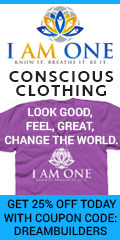End your confusion
 Wednesday, April 18, 2007 at 6:43PM
Wednesday, April 18, 2007 at 6:43PM Confusion is explained by the sources of your fear. In order to end confusion, you must take steps to explore your inner self and learn not to be afraid. Doing new things entails risk. Fear is the reason for all experiences you create or avoid, the risks you're afraid to take and the risks you're afraid not to take. What kinds of illusions do you devise to convince yourself taking a chance wouldn't be worth it? You may be the sort of person who would choose to isolate yourself to preserve and protect the person you think you are. Yet, part of you fears to remain that way or you wouldn't contemplate change.
What if I told you that the very things you devise in your mind are the kinds of experiences you'll get? That is, if you choose to fear the consequences of taking a risk, you will either take the risk and suffer the consequences you imagine, or avoid the risk altogether and suffer results of that. If you're convinced you'll experience uncomfortable or undesirable things, then you invite them in. At the same time, the opposite is also true. Envisage positive developments and they will materialize.
As you evolve to be willing to take risks, this reflects new self-awareness and desire to confront fear. It is also an indication of maturity and eagerness to learn. Each of us can act to gain a clearer sense of our perceived abilities, what we think we can do, and what we hope to do. This is itself a learning process. At different stages of your life, your thinking and perception may differ. Every tentative feeling is a mark of underlying fear that we can evolve to admit and confront in order to move forward. Do you feel really confused yet?
You have many options that encourage your personal growth and development of emotional intelligence. Some people attend school or participate in conferences and meetings. Other people choose to meditate. You may start by simply making new choices about how you'll view issues or obstacles in your life. If you're serious and commit to learn what it takes to understand risks and how you feel about them, you can reach out to people and resources to find assistance wherever you are.
To end your confusion, begin by acknowledging when and why you harbour fear inside. Fear doesn't have to be seen as a negative emotion. Why not choose instead to consider it as a stepping stone to healing and greater fulfillment? Fear is an outlet through which you can vent and release negative thoughts, self-doubt and destructive energy. That makes it a very positive thing. It enables you to rid yourself of negative energy and emotions, and better understand yourself. You have incentive to learn to deal with confusion and the fear that lies behind it. You'll evolve to live a more meaningful life and feel ready to take risks that enrich all you are.










